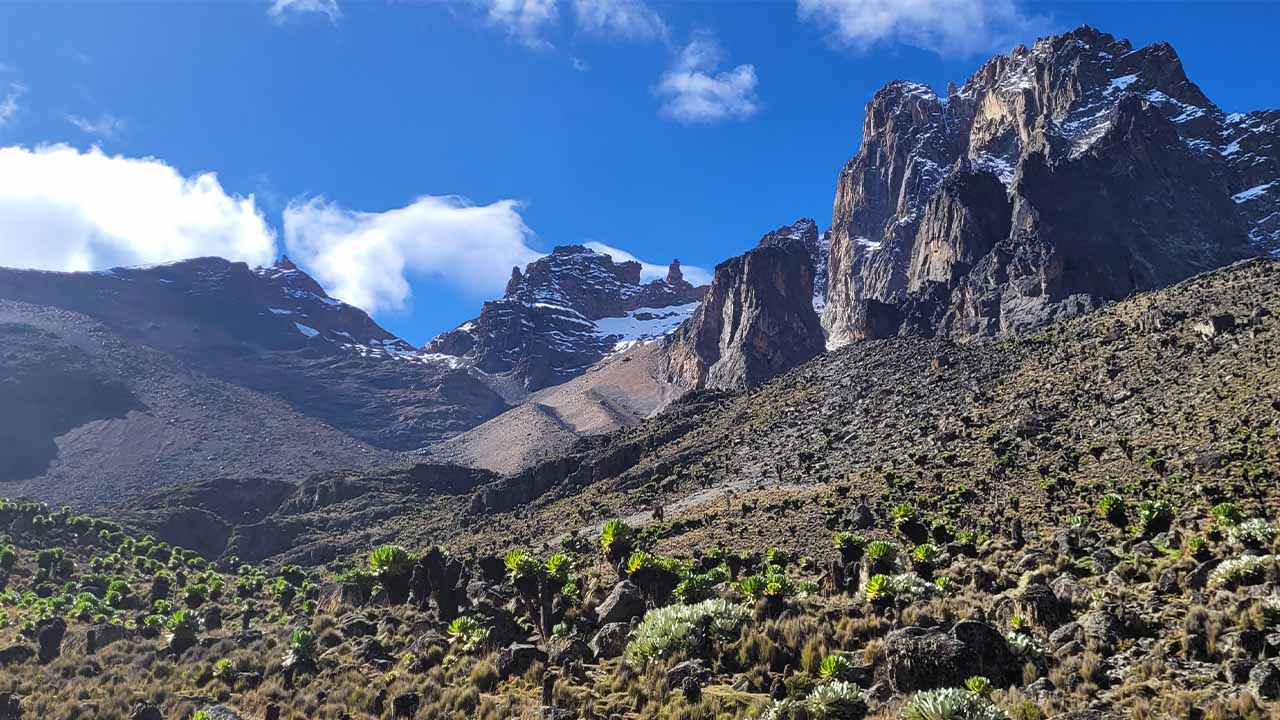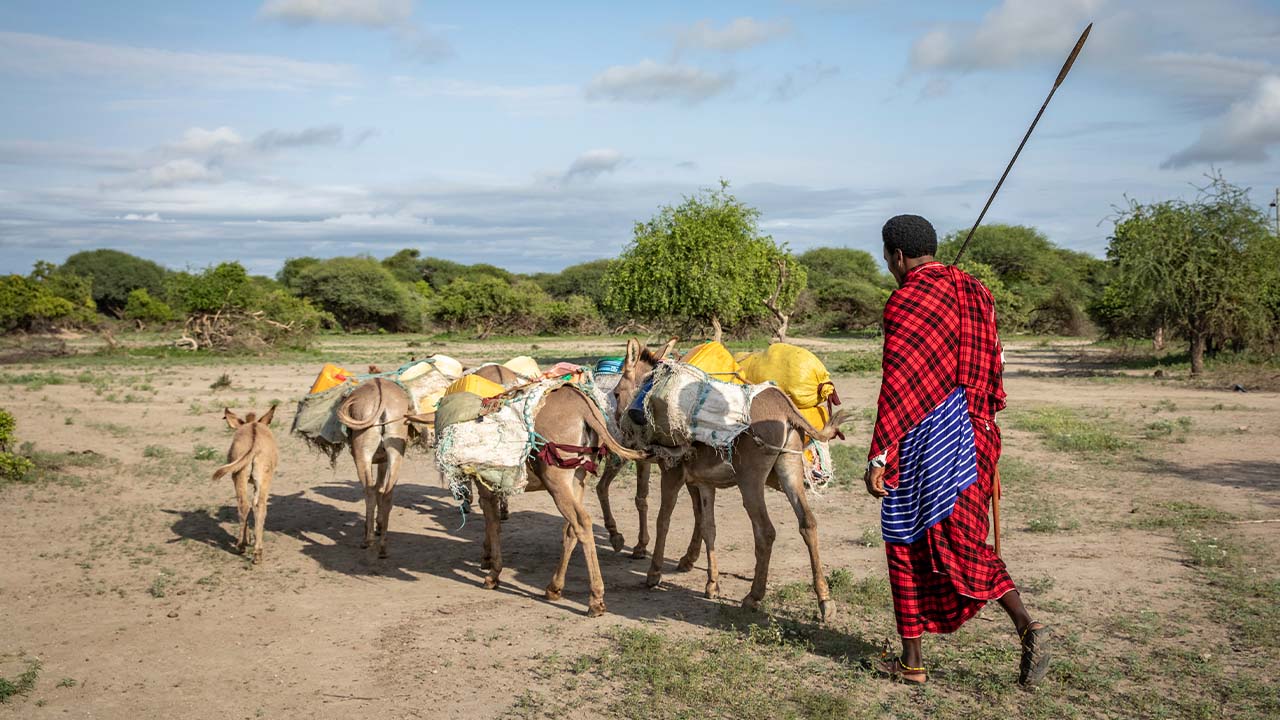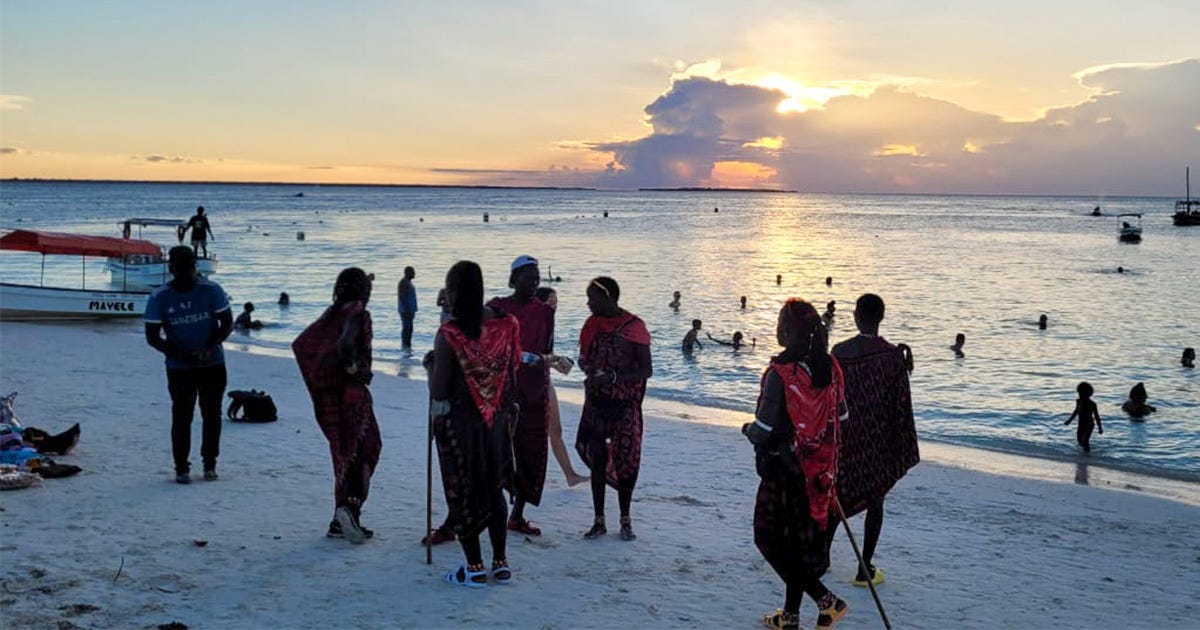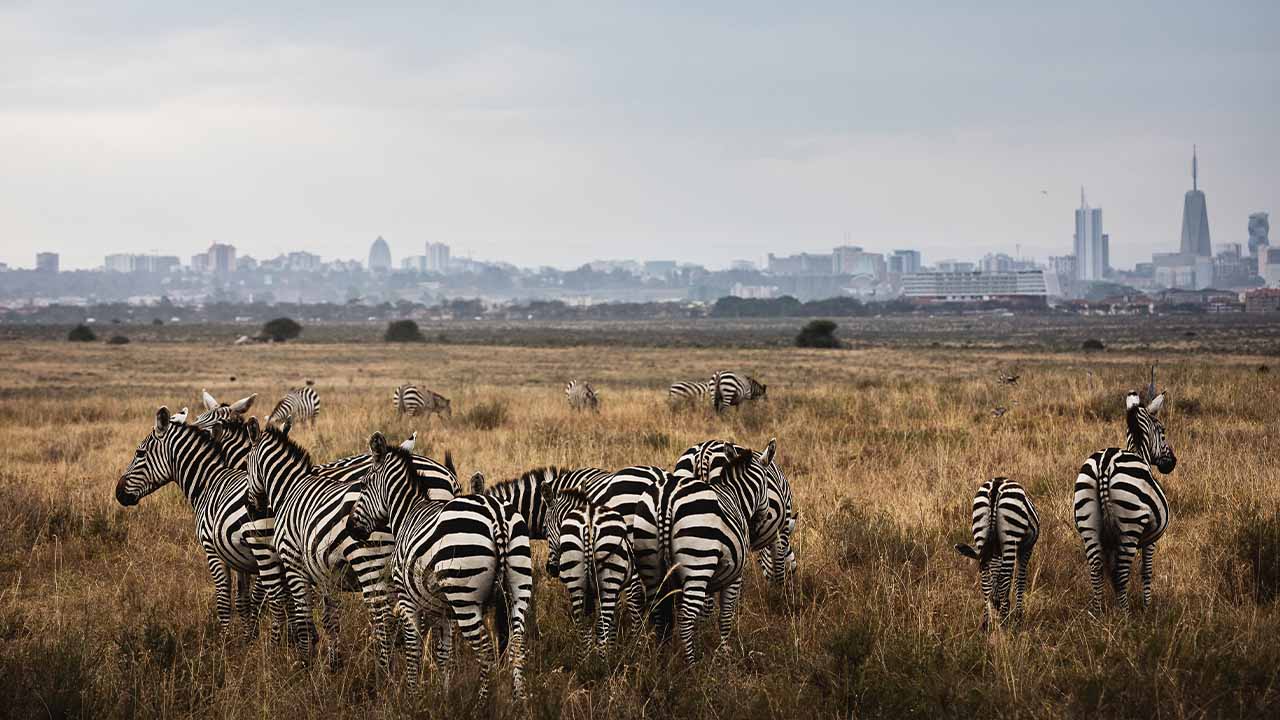
Nairobi is a vibrant city teeming with life, culture, and history. It is the heartbeat of Kenya, a country known for its scenic landscapes and diverse wildlife.
This guide is packed with all the critical information you need, whether you’re considering moving to Nairobi or simply curious about this dynamic city.
While this guide provides crucial information to help with your plans, please remember that countries often update their rules, including visa requirements. So, double-checking the latest facts and details is always a good idea.
How to Get to Nairobi
Nairobi is serviced by Jomo Kenyatta International Airport (NBO). It’s well-connected globally, making flying in from various locations easy.
Situated roughly 15 kilometers southeast of Nairobi’s city center, reaching downtown from the airport can take anywhere from 20 minutes to over an hour, heavily dependent on traffic conditions.
To get from the airport to the city, you can use a taxi or public transport. A taxi ride to the city center is typically quicker, taking about 20 to 30 minutes, whereas using public transport might take a bit longer but is a cost-effective choice.
It’s advisable to order an Uber upon arrival at the airport. This way, you’ll know the fare beforehand and can avoid the stress of determining whether the individuals offering taxi services are legitimate.
Visa Requirements
Kenya has a visitor-friendly visa policy. Many nationalities can obtain a visa on arrival, and some can do so for free. For those from countries not covered by visa exemptions, Kenya provides the flexibility of applying for a visa online.
Those opting for online applications can choose to pay online or after arriving in Kenya. The visa cost is reasonable, with a single entry visa valid for 90 days priced at no more than 50 USD and a multiple entry visa valid for three to twelve months priced at 100 USD.
Additionally, Kenya offers the East African Tourist Visa for those planning to visit neighboring countries, Uganda or Rwanda, for 100 USD. This visa allows travel between the three countries for up to 90 days. Just remember, if you choose this option, you need to apply for the visa in the first country you’ll be entering and can then freely travel between the three countries for the duration of the visa.
Essential Documents
Ensure your passport has at least 6 months of validity from entering Kenya. A printed copy is necessary if you’ve applied for an e-visa.
Be prepared to show proof of an onward or return flight when you arrive in Kenya, as they may ask for this information. If you don’t know where you plan to go next, consider using ticket rental services such as onward flight.
Certain countries require proof of vaccination, such as for Yellow Fever. Check whether this applies based on your departure country. Kenya might also enforce specific health measures in response to health emergencies.
While travel and health insurance aren’t compulsory, they are strongly advised for your safety and peace of mind. If you’re looking for an affordable option, we recommend SafetyWing. We’ve put together a comprehensive guide to assist you in choosing the right travel insurance.

Travel Insurance Simplified: Your Guide to Safe and Secure Trips
Find affordable options and why travel insurance is essential for your next trip. Stay safe and enjoy your travels without unexpected troubles!
Language
Swahili and English are Kenya’s official languages, and you’ll find English widely spoken in Nairobi, facilitating accessible communication for English speakers. However, fewer people speak English in more rural areas, which can be challenging. Nonetheless, people are often willing to help as best as possible.
Currency
The official currency is the Kenyan Shilling (KES). While US Dollars are accepted in most places, using the local currency is advisable to avoid potentially unfavorable exchange rates.
Credit cards are widely accepted in most establishments. Still, it’s worth carrying some Kenyan Shilling for transactions in local markets or smaller shops, which might not accept card payments.
You’ll find ATMs and currency exchange services easily in Nairobi, so you don’t need to exchange much money at the airport, where exchange rates are often less favorable.
For those planning an extended stay in Kenya, consider purchasing a local SIM card. This allows you to use mobile payment services, which are very popular and convenient for making payments throughout Kenya.
Getting Around in Nairobi
Navigating Nairobi requires an understanding of its diverse and dynamic transportation system, which has evolved to cater to the needs of its residents and visitors.
Taxi Services
Uber is available in the city and is fast, affordable, and safe. It is ideal for short distances in the town, offering convenient and cost-effective transportation, especially when going out for some drinks.
Public Transport
Nairobi’s public transport is primarily dominated by matatus, privately owned minibusses known for their vibrant decorations, music, and TVs. They should be avoided. These services often involve aggressive driving styles and may overcrowd passengers beyond a comfortable capacity.
Car Rentals
Car rentals in Nairobi offer a convenient option for those who prioritize comfort, privacy, and the flexibility to move around at their own pace. Renting a car in Nairobi allows visitors and locals alike to explore the city and its surroundings without the constraints of public transport schedules or the need to navigate the sometimes complex matatu routes.
While Nairobi’s roads are generally in okay condition, especially the main arteries, it’s essential to be prepared for heavy traffic during peak hours and aggressive driving. Drivers should also be aware that driving standards and practices may differ from what they’re used to.
Walking around
Sidewalks are typical in the central business district (CBD) and other significant areas. However, in some parts of the city, sidewalks can be uneven, crowded, or nonexistent, which may require walking alongside the road, so if you choose to walk, be cautious of vehicles passing by nearby.
Also, pedestrian crossings may not be as prevalent as one might expect. When attempting to cross specific roads, it may be necessary to assertively step forward to signal your intent to cross, encouraging vehicles to stop. This approach often requires a careful assessment of traffic flow and timing to ensure safety.
Overall, it’s safe to walk during daylight. Still, it’s wise to be discreet with your belongings, stay aware of your surroundings, avoid walking alone, and steer clear of quiet or poorly lit areas. Being cautious is always a good idea.
What to Wear
In Kenya, the dress code is casual yet respectful. Here are some general guidelines for dressing comfortably while showing respect for local customs:
- Trousers and Shorts: Trousers are a common choice, but shorts are also acceptable. Avoid overly casual or revealing attire, such as walking around shirtless, regardless of your choice.
- Length of Clothing: Opting for knee-length or longer clothing is often more comfortable and aligns well with the local culture’s modesty norms. This applies to both skirts and shorts.
Blending in with the local population is advisable to minimize drawing unnecessary attention to yourself. In Nairobi, standing out as a tourist can attract everything from overly friendly locals eager to interact to pickpockets who see you as an easy mark.
Best Time to Visit
Nairobi enjoys a pleasant climate year-round, but the best times to visit are during the dry seasons, from June to October and December to February. These periods are ideal for safaris and wildlife viewing.
Safety
Kenya is generally considered safe, yet travelers should be aware of crime in urban areas and heed advisories regarding terrorism risks. As an international visitor, you might draw attention from beggars, hawkers, and pickpockets. Like any major city, it’s wise to follow standard safety precautions in Nairobi. Keeping a low profile and being mindful of your surroundings, especially at night, will enhance your safety.
Security checks for vehicles and personal belongings are routine. They are part of the city’s efforts to increase safety standards. These checks are a normal part of life in Nairobi and contribute to the city’s security.
Terrorism
Kenya has faced terrorist attacks in the past, with notable incidents being the 2019 DusitD2 complex attack in Nairobi and the 2013 Westgate shopping mall attack, among others. These attacks were mainly perpetrated by the extremist group Al-Shabaab, often in retaliation for Kenya’s military involvement in Somalia.
It’s crucial to stay informed about the current situation through reliable sources and government travel advisories. While there is a history of terrorism, the Kenyan government and security forces are actively working to counter these threats.
Health Concerns
Malaria is present in Kenya, so it is advisable to take precautions such as using mosquito repellents and sleeping under nets, particularly during the rainy season. While Nairobi is typically a low-risk area for malaria, check the updated information on reliable sources.
Where to stay
Nairobi offers diverse neighborhoods catering to different preferences:
- Westlands: It’s a bustling area known for nightlife, shopping, and dining. Suitable for those who like to be where the action is.
- Kilimani: Offers a mix of residential and commercial spaces. It’s trendy, with many cafes, restaurants, and shopping centers.
- Karen: A more upscale, leafy suburb with spacious homes and gardens. Great for those looking for peace and quiet.
- Kileleshwa: A quiet residential area known for its modern apartments and laid-back lifestyle.
Each neighborhood offers a range of accommodation options, from budget-friendly guesthouses to luxury apartments. I’ve stayed in Westland for one month and enjoyed my time there.
Electrical Plugs and Outlets
Like the rest of Kenya, Nairobi predominantly uses Type G electrical outlets. It’s advisable to bring a universal adapter to ensure compatibility.
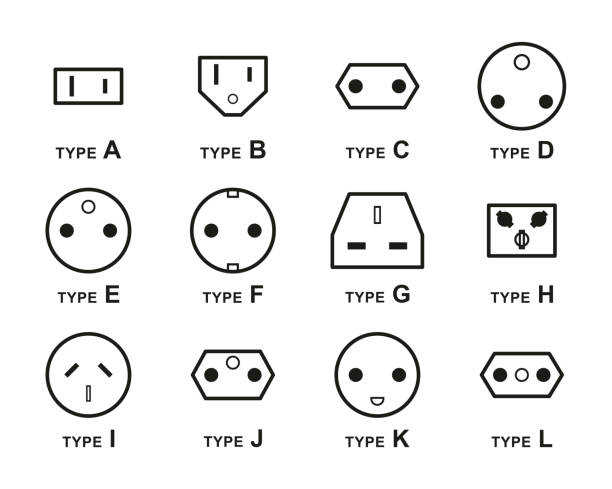
Recommended Apps
To make your stay in Nairobi more convenient, we recommend the following apps:
| App Name | Purpose |
|---|---|
| Uber | For rides, groceries, and food services. |
| M-PESA | A widely used mobile payment app. It’s very convenient for quick and contactless transactions. |
Tap Water Quality
While tap water in Nairobi is generally considered safe for brushing teeth, drinking bottled or filtered water is advisable, especially for visitors with sensitive stomachs.
Emergency Numbers
| Service | Phone Number |
|---|---|
| General Emergency | 999 |
| Police | 911 |
Share This Article
What to read next
Disclaimer: This post may include affiliate links. We may receive a commission at no extra cost to you if you click one of them. Thank you for your support!
